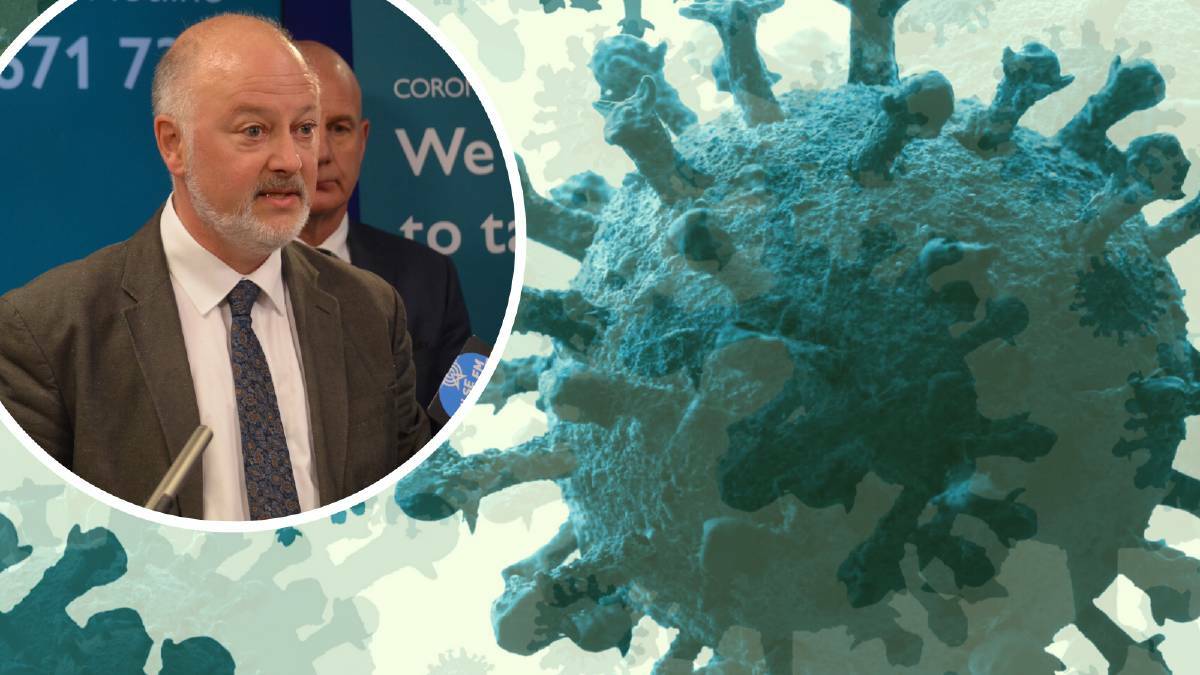
Exposure site listing in Tasmania is set for a shake-up with the listing of casual-contact sites in the process of being scrapped.
Subscribe now for unlimited access.
$0/
(min cost $0)
or signup to continue reading
State Public Health Director Dr Mark Veitch said the Public Health contact tracing team would be undertaking a "lighter touch" in regard to contact tracing because of the Omicron strain's reduced severity.
"We will be paying less of a focus on casual contacts, which means we won't be routinely listing casual contact sites," he said.
"If someone has been at a site, that might previously have been a classed as a casual contact site, we'll look at it carefully and decide whether it should be listed as a close contact site and if so manage it accordingly."
Dr Veitch said the decision came in the wake of last week's National Cabinet meeting and was means of making contact tracing "more sustainable".
He said the goal was to continue to achieve "good public health outcomes", but to not "disrupt all of society".
Dr Veitch described the contact tracing processes and how, if casual and low-risk sites were a significant part of the effort, a "very large proportion of the state" would soon be linked to a positive COVID case.
"We're going to fairly quickly move over the next week or two ... to a situation where we're principally focused on close-contacts and managing them actively, and we want all of Tasmania to realise that really wherever you are there is a small risk you could have encountered coronavirus in the past short while," he said.
"We want everyone in Tasmania to, in a sense, be aware that they could have been at a low-risk exposure site or even a casual exposure site at any time ... and if they get any symptoms, or become aware they've been close to someone who is a case, to get a test."
Despite the changes to contact tracing, and burgeoning COVID cases as a result of the highly transmissible, but less severe Omicron strain, Premier Peter Gutwein said he had faith in the systems in place.
"Systems are working as they should," he said.
READ MORE: Fish farm worker recalls 'lucky' rescue
"In coming days as we work through this issue with low-risk and casual-contact sites, if there is a need to update we will provide that info as that advice is provided.
"Our plan remains the same. We manage this by taking sensible public health social measures, we managed this by getting a test if we're feeling unwell, and importantly isolating and not going and attending events."
Mr Gutwein said it was clear contact tracing across the country was "stretched", but did not say whether or not the casual-contact changes were a direct result of the state's contact tracing teams facing those pressures.
"We [took] on an external contract so that we had additional resources that we could draw from [for contact tracing]," he said.
"Obviously, though, right around the country at the moment, contact tracers are working very, very hard. But we'll utilise both Health Direct resources (the external contract) as we need them ... but also we've been training up additional contact tracers to ensure we've got a pool that we can draw from."
What do you think? Send us a letter to the editor:
Our journalists work hard to provide local, up-to-date news to the community. This is how you can continue to access our trusted content:
- Bookmark www.examiner.com.au
- Make sure you are signed up for our breaking and regular headlines newsletters
- Follow us on Twitter: @examineronline
- Follow us on Instagram: @examineronline
- Follow us on Google News: The Examiner



